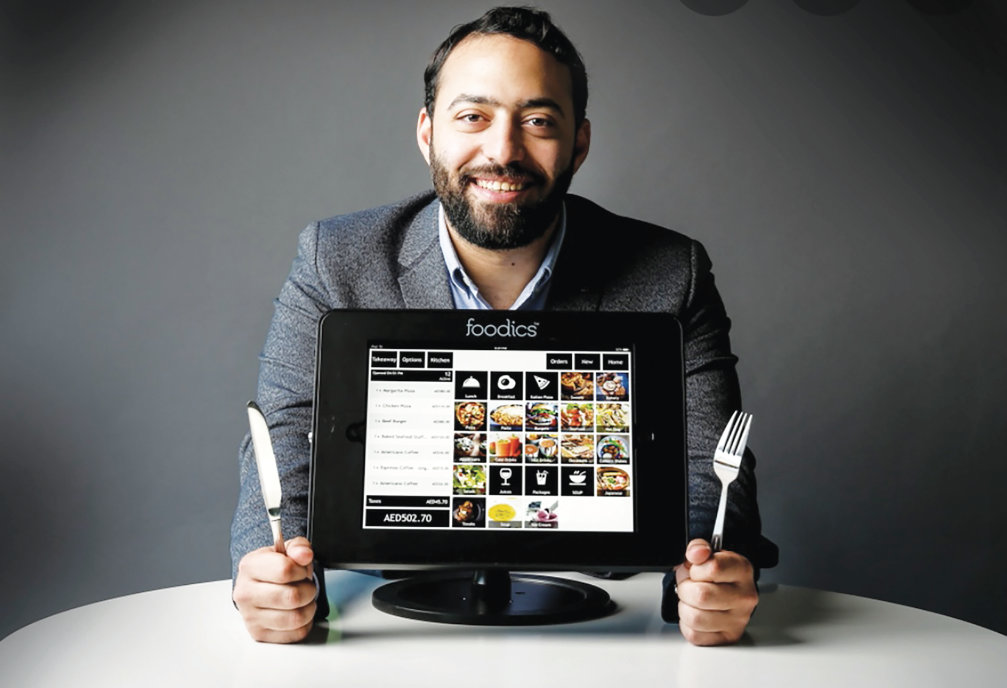RIYADH: The entrepreneurial ecosystem has been on the rise in the Middle East and North Africa region for a while, with technology-based sectors starting to dominate the business landscape.
Financial technology, popularly known as fintech, has been a promising sector for business people and investors alike, with startups entering and exiting the industry like never before.
The numbers speak for themselves. Startup funding increased 540 percent in the first quarter of 2022 compared to the same time last year, reported Dubai-based MAGNiTT, a startup research platform.
To get a sense of the action in the fintech domain, Arab News has compiled a list of the 10 most funded fintech startups in the MENA region.
Tabby
Founders Hosam Arab, Daniil Barkalov
Funding $275 million
Rounds 8
Investors 19 investors including STV, Global Founders Capital, Raed Ventures, Partners for Growth, Atalaya Capital.
Headquarters UAE
One of the leading buy-now-pay-later platforms in the region, Tabby aims to provide financial freedom to shoppers by offering solutions without interest or debt fees.
Focusing on the retail sector, the company wants to improve the shopping experience of its loyal customers by offering a flexible checkout experience.
Tabby raised $150 million in debt financing in its last funding round and it aims to use it to fortify its balance sheet as well as strengthen its client base.
Foodics
Founders Ahmad Al-Zaini, Musab Al-Othmani
Funding $198 million
Rounds: 5
Investors 17 investors including STV, Sanabil and Prosus
Headquarters Saudi Arabia
Foodics offers a point-of-sale management system for restaurants that lets business owners keep track of all their operations, from the kitchen to employees and sales.
The company offers many facilities that support restaurant operations, including micro-lending and payments catering to food and beverage establishments.
In its latest funding round, Foodics secured $170 million in a series C round, allowing it to grow its fintech arm and micro-lending operations.
Tamara
Founder Abdulmohsen Al-babtain, Abdulmajeed Al-sukhan, Turki Bin Zarah
Funding $116 million
Rounds 4
Investors 9 investors including Impact46, CheckOut.com and Nama Ventures
Headquarters Saudi Arabia
Another pioneer in the buy-now-pay-later market, Tamara is a Saudi-based fintech that offers its solutions to merchants and buyers alike.
The company aims to create a seamless experience for shoppers by providing a zero-interest fee for its services.
In 2021, Tamara raised $110 million in a series A round, making it a record-breaking round last year.
Paymob
Founder Islam Shawky, Alain El-Hajj, Mostafa Menessy
Funding $68.5 million
Rounds 4
Investors 10 including PayPal Ventures, Nclude and A15
Headquarters Egypt
Paymob, one of the players that changed the game in the Egyptian market, is a complete fintech solution for emerging markets and small and medium enterprises.
The company offers a complete digital payment solution for businesses to accept online and in-store payments.
Founded in 2015, Paymob raised $50 million in a series B funding round in May 2022, which was used in product development and market expansion.

Ahmad Al-Zaini, the co-Founder and CEO of Foodics, a Riyadh-based startup which helps food outlets with their digital transformation. (Supplied)
PostPay
Founder Tariq Sheikh
Funding $63.5 million, according to Forbes
Rounds Undisclosed
Investors Touch Ventures and AfterPay
Headquarters UAE
Founded in 2019, Postpay is a flexible payment firm that offers shoppers to pay in three monthly interest-free installments at its partner stores.
The company works with leading global brands such as H&M, Footlocker, Dermalogica and domestic merchants such as The Entertainer and Squat Wolf.
Last June, the company secured $10 million in equity investment; the funds will be used to fuel its expansion plans across the MENA region.
HyperPay
Founder Muhannad Ebwini
Funding $50.5 million
Rounds 4
Investors 8 including Mastercard and AB Ventures
Headquarters Saudi Arabia
HyperPay offers a payment gateway for online businesses to accept and manage
payments online with flexibility and security.
Founded in 2014, the company has an extensive network of partners with banks across the Middle East and North Africa to better facilitate online payments in local currencies.
In its last funding round, HyperPay secured $36.7 million in June 2022 to enable the company to grow its team and introduce new payment solutions.

Khazna
Founder Omar Saleh, Ahmed Wagueeh, Fatma Shenawy
Funding $47 million
Rounds 7
Investors 12 including Quona Capital, Khawazimi Ventures and Nclude
Headquarters Egypt
Another Egyptian fintech startup that tops the list, Khazna, is a financial super app that offers a wide range of solutions for underserved individuals.
The company aims to provide
the 20 million underserved Egyptians with banking and financial options through their smartphones.
Founded in 2019, the company raised $38 million in March 2022, allowing it to replace cash-driven alternatives across Egypt.
BitOasis
Founder Daniel Robenek, Ola Doudin
Funding $30 million
Rounds 6
Investors 15 including Wamda and Jump Capital
Headquarters UAE
A new kind of fintech added to the list, BitOasis is a cryptocurrency trading platform that offers a digital asset wallet.
Founded in 2015, the company allows users to buy, sell, trade and exchange crypto assets in the UAE.
Raising $30 million in its last funding round, BitOasis got approvals from the Abu Dhabi General Market and partnered with police entities to combat crypto fraud.
Telr
Founder Khalil Alami
Funding $28.9 million
Round 4
Investors 4 including Cashfree Payments and iMena Group
Headquarters UAE
An award-winning payment gateway provider, Telr has offices in Singapore, the UAE, India, and Saudi Arabia.
The company offers businesses a set of application programming interfaces and tools to enable them to accept and manage online payments.
Telr raised $15 million in a funding round in 2021 by India-based Cashfree payments to better facilitate cross-border payments.
Paytabs
Founder Abdulaziz Al Jouf
Funding $25.3 million
Rounds 2
Investors Saudi Aramco
Headquarters Saudi Arabia
Another award-winning startup, Paytabs, is a B2B online payments solutions provider that aims to give merchants digital payment features on their websites.
The company offers application programming interfaces to facilitate transactions in multiple currencies and other markets.
Founded in 2014, Paytabs is a Saudi Aramco-backed company that currently operates in the UAE, Saudi Arabia and Egypt.






















